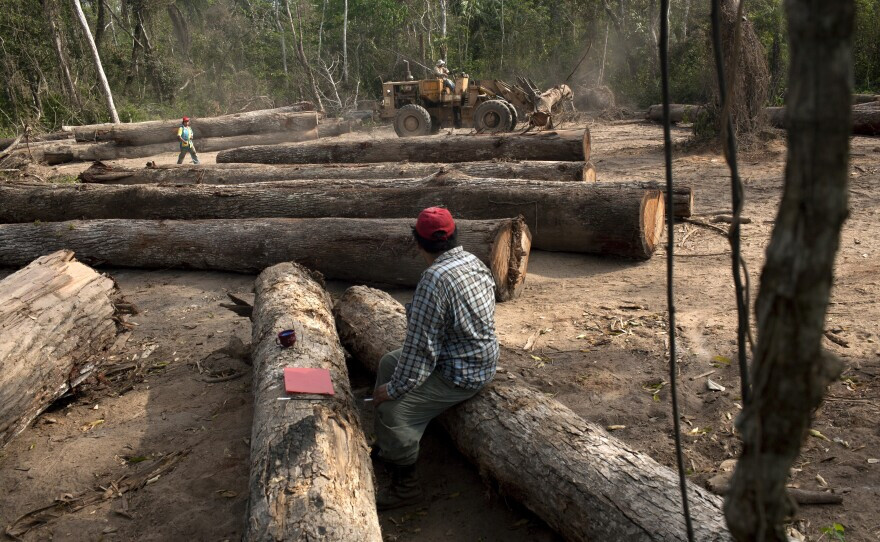
Bolivia's forestry sector is at a decisive moment. While it has high potential for generating income and contributing to the country's economic development, it faces structural and cyclical challenges that limit its growth.
According to Jorge Ávila, general manager of the National Forestry Chamber (CNF), the sector could exceed $1.2 billion annually in exports by 2025, provided that the appropriate conditions are established. However, this goal seems distant if key problems such as the lack of legal security, road blockades, diesel shortages, and the reduction of forest production areas are not addressed.
In 2024, the industry showed remarkable resilience, reaching exports exceeding $70 million by September, representing a 10% increase compared to the same period in 2023. However, initial projections of closing the year with $100 million were adjusted to a range of $89 to $91 million, due to the obstacles faced by the sector.
Sector Diagnosis
2024 has been a year of contrasts for the Bolivian forestry sector. On the one hand, until September, exports grew by 15.2%, reaching $71.8 million, compared to $62.3 million recorded in the same period of 2023. This increase reflects the sector's ability to adapt to economic, political, and social adversities, both nationally and internationally, according to Pedro Colanzi, president of the Bolivian Forestry Chamber (CFB).
However, the recorded growth was not enough to meet the sector's expectations. Road blockades and diesel shortages significantly affected forest operations, limiting their expansion. In addition, legal insecurity and land invasions have drastically reduced forest production areas, which went from 16 million hectares in 1996 to only 2 million today.
"The impact of forest fires, land reversals, and conflicts with intercultural actors has been devastating," Ávila warned.
Commercial Balance
Despite the challenges, the forestry sector closed 2024 with a favorable trade balance. Exports of processed wood products—such as floors, moldings, doors, windows, furniture, boards, and sheets—represented 63.5% of the total, while semi-processed products constituted 36.5%.
China consolidated itself as the main destination for exports, with a 55% increase, generating revenues of $23.2 million. It was followed by the United States, with a 14% increase ($16.8 million), and Brazil, which recorded a 65.7% growth ($4.3 million).
On the other hand, imports of forest products fell by 26.2%, totaling $32.2 million, compared to $43.6 million recorded in 2023. This reduction is attributed, in part, to the scarcity of foreign currency in the country. Brazil remained the main supplier of wood to Bolivia, with $22 million in exports, although with a 28.8% drop, followed by China, whose sales to the Bolivian market decreased by 13.1% ($4 million).
Structural Challenges
One of the main obstacles facing the forestry sector is the lack of legal security. Forest concessions are constantly threatened by land invasions and conflicts with intercultural actors, which has resulted in a significant loss of production areas. In addition, land reversals and forest fires have exacerbated this problem.
"The business sector has demonstrated its commitment to sustainability, respecting cutting cycles and managing areas with high biodiversity and wood volume," Ávila said. However, the prejudice persists that the timber industry is the main responsible for deforestation, when in reality this is largely due to unregulated agricultural activities.
Another critical challenge is logistics. Diesel shortages and road blockades have slowed forest operations, increasing costs and limiting export capacity.
"We thought that 2024 had all the conditions to be an exceptional year, but the structural and cyclical problems prevented us from reaching our goals," Ávila lamented.
Government Support
Despite the challenges, the Bolivian forestry sector remains a strategic actor with significant potential. To reach the goal of $1.2 billion in exports by 2025, it is essential to implement structural reforms that guarantee legal security, logistical solutions, and effective state support to promote the sustainable use of forests.
"The forestry sector can contribute significantly to the country's economic and environmental development, but we need favorable conditions to operate," Ávila stressed.
2025 is shaping up as a new opportunity for the sector to overcome its challenges and enhance its impact on the Bolivian economy. However, success will depend on the ability of the government and other key actors to promote policies that foster sustainable growth.
"We are confident that conditions will improve and that the fundamental role of our industry in the country's development will be recognized," Ávila concluded, sending a message of hope and commitment.
A Resilient Sector
The Bolivian forestry sector has demonstrated a remarkable capacity for adaptation in the face of economic, political, and social crises. Despite the challenges faced in 2024, it managed to maintain moderate growth and a positive trade balance.
However, for the industry to reach its true potential and contribute decisively to the country's sustainable development, it is essential to address the structural problems that limit its expansion.
[Copyright (c) Global Economic Times. All Rights Reserved.]






























